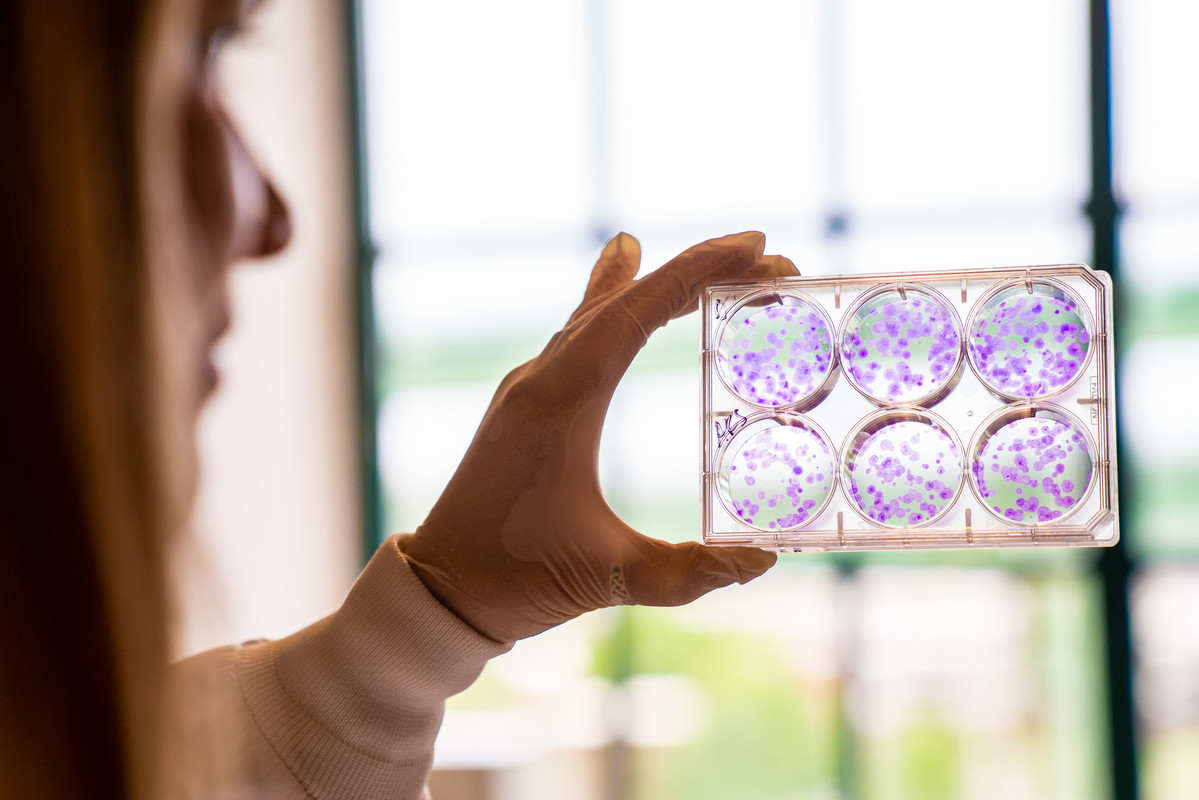Brain metastases — secondary tumors caused by malignant cells that migrate to the brain from elsewhere in the body — are the most common form of brain cancer. They are also among the most challenging to treat, with some of the lowest survival rates of any subtype. Studies have shown that brain metastases typically carry a higher number of mutations in comparison to primary brain tumors, making them more resistant to standard therapies. They also occur in the complex microenvironment behind the blood-brain barrier, which makes drug delivery especially difficult.
Despite these challenges, hope is on the horizon, thanks in part to the efforts of Massachusetts General Hospital neuro-oncologist Priscilla Brastianos, MD, Terry and Jean de Gunzburg MGH Research Scholar 2021-2026.
“There are very few effective treatments for patients with brain metastases — in part due to a limited understanding of the oncogenic alterations in these sites,” says Dr. Brastianos, a principal investigator with the Krantz Family Center for Cancer Research who specializes in studying the genomic drivers of human brain tumors. “The unmet need is significant, and our goal is to improve outcomes and open up new therapeutic avenues for patients faced with this grim prognosis.”
“Deciphering the role molecular drivers play in the development of brain metastases in cancer has been a major challenge in improving treatment. The multidisciplinary and multi-institutional efforts of Dr. Brastianos and her team represent a remarkable step toward the development of new therapeutic avenues for patients with brain metastases.”
Dr. Brastianos is the director of the Central Nervous System Metastasis Center, a specialized effort dedicated to identifying the mutations driving brain metastases. At the heart of this precision medicine approach is an extensive tissue bank of patient samples assembled by Dr. Brastianos and her team. Each sample has its genome sequenced, and the results are analyzed to identify recurring pathways. This approach has led to the discovery of genetic drivers in a range of primary and metastatic brain cancers, and the team is now investigating potential therapeutic targets in several national NCI-sponsored multi-center clinical trials.
One of these clinical trials led by Dr. Brastianos, in a rare brain tumor called a papillary craniopharyngioma, showed that all patients who received one or more cycles of targeted therapy, had dramatic shrinkage of their brain tumor. These types of responses are unprecedented for patients with brain tumors.
“Deciphering the role molecular drivers play in the development of brain metastases in cancer has been a major challenge in improving treatment,” says Daniel Haber, MD, PhD, director of the Mass General Cancer Center and of the Krantz Family Center for Cancer Research. “The multidisciplinary and multi-institutional efforts of Dr. Brastianos and her team represent a remarkable step toward the development of new therapeutic avenues for patients with brain metastases.”
For Dr. Brastianos, her commitment to patients is rooted in personal experience, having lost both her mother — also a physician — and her grandmother to metastatic breast cancer. Before she died, Dr. Brastianos’ mother challenged her then third-year medical student daughter to find better treatments for cancer.
“Two days before she died, she took my hand and made me promise that I would live my life to do better for patients,” she says. “I’ve dedicated my life to living up to that promise.”
To learn more about Dr. Brastianos and her team and how you can support their work, please contact us.

This story is just one example of the groundbreaking efforts taking place at Mass General, home to the largest hospital-based research enterprise in the U.S. — the Mass General Research Institute. The Research Institute encompasses and provides support to thousands of scientists, hundreds of laboratories, and helps to guide, connect and promote this unrivaled community of investigators as they advance the future of medicine, from the bench to the bedside, to the community and world.


